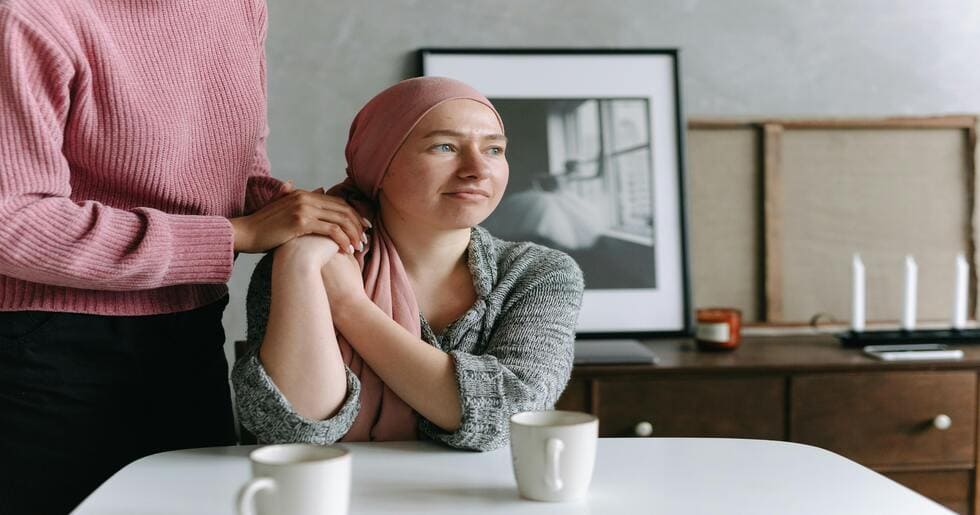Do You Know These Signs of Plaque Psoriasis?
Published on August 27, 2024By Sergi C. (Contributor)
Contents


Plaque psoriasis, which is a skin condition that can cause round patches of red areas covered with fine silvery white scales. Detecting these symptoms is crucial for possible early recovery from the illness. In this article, we look at the symptoms, types, severity and diagnosis of plaque psoriasis as well as risk factors for developing it.
What is Plaque Psoriasis?
In Plain English: Plaque psoriasis is the type of psoriasis that most people have — those raised, reddish patches covered in flaky white scales. Erythematous plaques may present anywhere on the body, and most frequently affect elbows, knees, scalp and lower back.
Mechanism: it is an autoimmune disease in which the immune system targets with skin cells causing them to develop and pile up on the surface. This leads to inflammation and rapid reproduction of new skin cells, causing the new cells are trapped on top layer of your skin.
Signs and symptoms
- Scaly Patches: Areas of red, raised, inflamed skin covered with silvery white scales. These are aching and itching.
- Dry or Cracking: When affected skin is dry, it can become cracked and lead to pain/blood.
- Itching and Irritation: Plaque psoriasis can be incredibly itchy, leading to scratching that tends ta worsen the condition.
- Thick, Discolored Nails: Psoriasis can impact the nails as well resulting in them growing thick and discolored with small dimples.
- Pain in Joints: There are instances wherein psoriasis is connected with an autoimmune response leading to pain along the joints.
- Erythroderma: large areas of the body becoming red and swollen
- Open sores: These can be small, round spots or big patches of skin that affect a large portion of the body.
Causes and Risk Factors
- Inherited: Plaque psoriasis tends to run in families. If either your mom or dad have psoriasis, you may be more likely to get it.
- Immune System: The disease is an autoimmune response and T cells inadvertently target healthy skin cells.
- Infections, skin injury, stress, smoking and heavy use of alcohol may provoke and worsen psoriasis due to the environmental factors.
- Climate: Cold, dry climates cause psoriasis to become worse, while moderate amounts of sunlight can have a beneficial effect.
- Drugs: Ready beta blockers and lithium, anticholinergics.
- HORMONES: Hormonal changes, particularly in women; can impact the way psoriasis looks or comes about.
Diagnosis and treatment
- Prepare Diagnosis: A dermatologist will diagnose plaque psoriasis simply by taking a bodily exam making use of and, in some instances, an epidermis biopsy.
- Topical treatments: Creams and ointments that contain corticosteroids, vitamin D, retinoid or coal tar can help in reducing inflammation and scaling. They can also be used in the face or skin folds and are calcineurin inhibitors.
- Phototherapy: Many patients experience improved symptoms with controlled administration of ultraviolet light. Ultraviolet B (UVB) and Psoralen Ultra-Violet A Light Therapy(use of psorlen with UVA light).
- Systemic Medications: When it is very severe systemic medications that treat the entire body, like methotrexate or cyclosporine and immune system altering biologics can be used.
- Lifestyle and Home Remedies: Keep skin moist, Avoid your triggers — stress or alcohol often trigger flare-ups Follow a healthy diet. Colloidal oatmeal or Epsom salts baths may also help.
- Complementary and alternative treatments: Some people benefit from complementary techniques, such as acupuncture or the use of nutritional supplements (vitamins), but you should speak with a doctor prior to using these.
- Behavior Modification: Techniques like meditation, yoga and more can help in reducing the flare of psoriasis.
Tips for Managing Psoriasis
- Moisturize: Keep skin soft and prevent it from drying out with moisturizers on a regular basis.
- Magnesium or oatmeal based salts can help to alleviate itching and inflammation of the area.
- Loose Clothes: Wear looser, soft clothing to help avoid the rub against of that bothersome skin.
- Try not to Scratch: Use stress management techniques and keep nails short in order to prevent you from scratching, which can further aggravate psoriasis.
- Adhere to Treatment: It is important not only just take directions from medical professionals and specialists but also follow up with any prescribe medicines in order to see results.
- Diet: following a healthy diet which is low in processed and high sugar foods, rich in fruit vegetables and omega-3 fatty acids will help you reduce inflammation.
- Steer Clear of Triggers: Learn what can make your psoriasis worse (e.g. some food types, stress or harsh chemicals) and avoid all those.
- It is good to sunbathe a little (10,20 min) but there should never be any burns
- By Hygiene and ointments: Practising good hygiene and applying light topical treatments can prevent secondary infections, along with helping to alleviate symptoms.
- Emotional Support: Joining support groups or talking to a therapist can help you manage how living with psoriasis makes you feel.
Conclusion
This means being able to identify it and understanding what might be causing or triggering it (and how best to treat them). By diagnosis and treatment, the symptoms can be controlled which will provide better quality of life.





